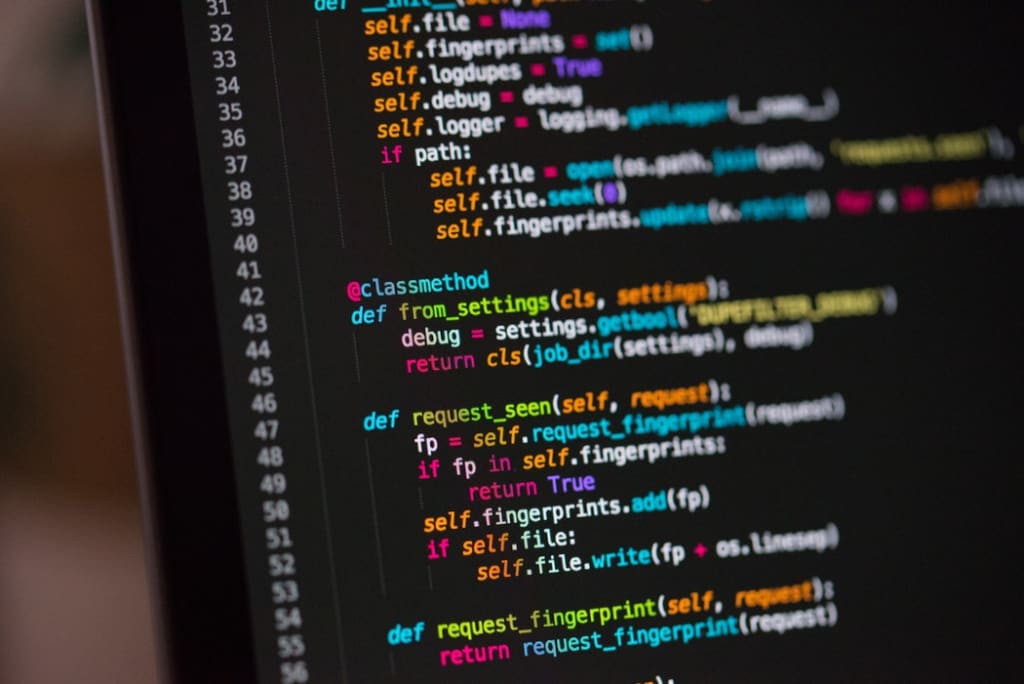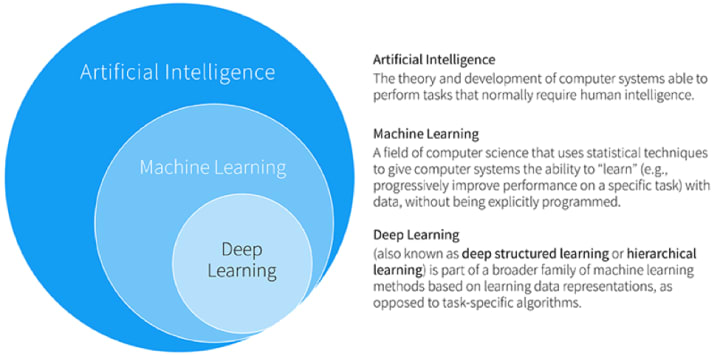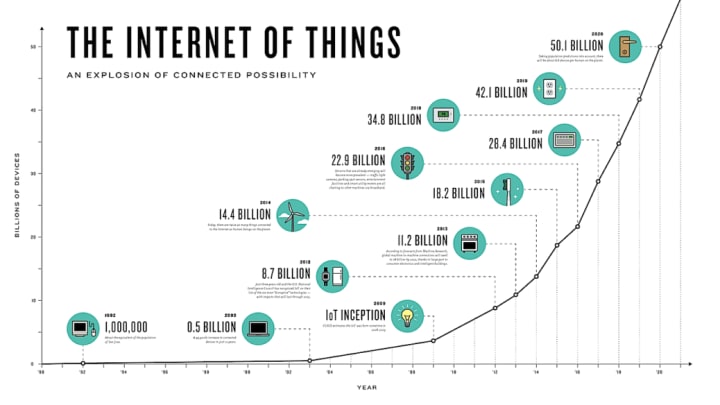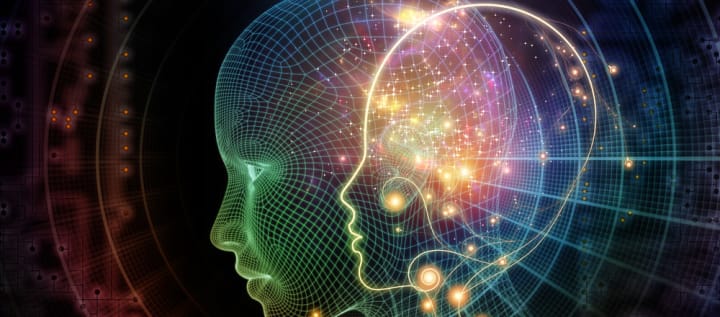The Troubling Trajectory of Technological Singularity
Humanity will not end in fire and brimstone, but from irrelevance as a result of the troubling trajectory of technological singularity.

Technological singularity refers to the point in time where artificial intelligence surpasses human intelligence, and the troubling trajectory of technological singularity should be something more widely recognized. What happens to humanity after we pass the brink of hyper-intelligent computers is a difficult question to answer.
As of 2019, computers are fast, but they are not intelligent in the same way humans are. For instance, computers can multiply large numbers and compute other simple operations in fractions of a second with 100 percent accuracy. This same problem would likely take a human longer to compute, and they very well could make a mistake along the way to their solution. However, if you draw a picture of 1 + 1 and upload this as JPEG file onto your computer, it becomes a far more challenging problem to solve for the machine. A machine cannot simply look at an image and determine what’s in it without analyzing pixel data, while any human beyond kindergarten finds this problem trivial. This is the idea of intelligence, in that computers currently can do what they are programmed to do very quickly and accurately, but they cannot think creatively and problem solve.
Our attempts to "make computers smart" are called machine learning and artificial intelligence. As oversimplified definitions, machine learning algorithms make decisions based on data, and as the known data and results grow, better decisions can be made. Artificial intelligence (AI) refers to techniques that give computers human-like intelligence, usually using machine learning. Most people have probably encountered AI through programs like Apple’s SIRI or Amazon’s Alexa. Likewise, AI such as IBM’s Watson are less present, but still drive a lot of useful programs such as weather forecasting (The Weather Channel App is powered by Watson).
AI and ML Relation Graphic

It is a challenge to measure, nominally, how smart something is, and the impact of intelligence evolution in humans is difficult to predict from here. Even for human intelligence, the reliability of IQ tests is very questionable. While we have progressed, have we actually gotten smarter? The answer is, at least, debatable. In MIT's discrete mathematics class, I learned and produced many proofs about elementary mathematics. Leonhard Euler, my favorite mathematician, was born in the 1700s. I studied much of his work in that course, and I can definitively say he is smarter than most everyone (if not everyone, though there are a lot of incredibly smart people alive today) in 2019 with respect to his ability to problem solve. Eueler invented graph theory simply to solve the Bridges of Konigsberg problem, which I believe most everyone could have theorized over for a lifetime and never developed a strong proof for without Euler. It is a remarkable solution, and one which argues that intelligence is, at the very most, increasing quite slowly. Even at the brink of a technology's looming dominance over humanity, the same cannot be said for computers. Computers are certainly growing more intelligent, and proof of this lies in Moore’s Law. In 1965, cofounder of Intel, Gordon Moore, theorized that the number of transistors that can be packed into a given unit of space will double about every two years (and if you don't believe me, you can find an interesting impact of Moore's law on the live music industry to help prove it). This trend has held for 50 years and tells us processing power of computers is growing exponentially, but does this imply their intelligence is growing exponentially (or at the rate which will be our demise)?
Exponential Growth Abound

Moore's Law
It is possible for computers’ processing power to grow without its problem-solving ability growing concurrently, but this is not realistic as it would require continued investment in hardware platforms without concurrent ideas, innovations, and inventions improving software. In reality, at least so far as humankind has experienced, investment in hardware implies contemporaneous investment in software; which implies improvement in both. Thus, we can say that computers are getting smarter with respect the fact that better algorithms and better data processing power are increasing computers’ ability to solve problems. While there is debate as to whether this exponential trend will continue, it is clear that computers are getting smarter faster than humans are.
This brings us back to the idea of technological singularity. It doesn’t matter how smart humans currently are or how smart computers currently are. Since computers are gaining intelligence faster than we are, basic mathematical principles of growth tell us that there will, at some point in time, be an intersection of human and AI intelligence, regardless of our respective levels of intelligence. So, it is superfluous to try to measure intelligence and draw comparisons. Google’s Director of Engineering, Ray Kurzweil, believes that a computer's intellect will surpass humanity's by 2045; however, the scale, scope, and complexity of that impact remains to be seen, as well as where humanity stands as a result of it.
The general consensus regarding what will happen, which I strongly agree with, is an unfathomable increase in the intelligence of computerkind. At this point, computers will be able to problem solve as well as humans, but they will be able to do so in a tiny fraction of the time it takes people. The trajectory of the technological singularity will be exponential, even compared to the exponential growth humans have experienced, since the collective problem-solving ability of a generation's lifetime will be executed by the singularity in a fraction of the time—the exact number being dependent on how fast computers get to the 2045 benchmark set by Kurzweil, or when computers finally pass our intelligence threshold.
This intelligence evolution in machines will be unlike anything humankind has experienced. Computers will be as good at programming as the best programmer in the world, but orders of magnitude faster. This growth will foster further growth, and this process will continue to occur indefinitely. Uncomfortably quickly, humanity’s greatest accomplishments will seem trivial. Our only worthy accomplishment, in the end, will be that we created the singularity.
The Implications of the Troubling Trajectory of Technological Singularity

At this point in the future, humans will be, simply, inferior to computers. Our one evolutionary advantage (besides opposable thumbs) over other animals, our intelligence, will be obsolete compared to supercomputers. We will have no competitive advantage to facilitate our survival, and natural selection will remove us from the planet. It will not be evil terminator or classic sci-fi robots, earthquakes, or floods that end humanity, but irrelevance. The result? Death akin to the way Neanderthals died off due to their inferiority to Homo Sapiens. Simply being superior to us in the presence of competition for resources means that technology will survive better than us, produce more offspring, and dominate us until the last human dies.
I, admittedly, do not think technological singularity will end the world in 2045; however, many engineers believe Moore’s law is unsustainable. Regardless, I believe that computers currently are and will continue to gain intelligence faster than humans do. So long as this trend holds, technological singularity will happen. And I do believe, shortly after this point in time, humanity will become obsolete, and we will slowly die off.






Comments
There are no comments for this story
Be the first to respond and start the conversation.